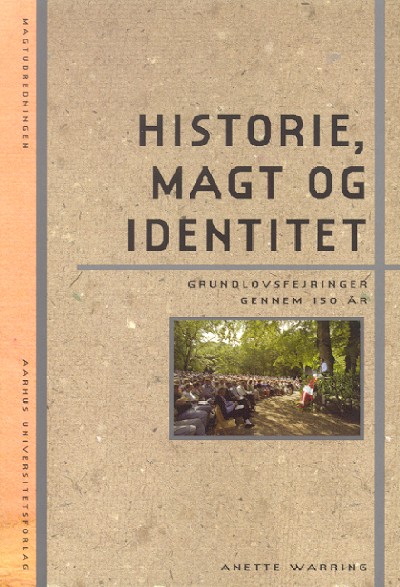History, power and identity describes how the Danish democracy and its history was staged and retold in constitutional speeches, in symbols and songs and in the overall scenography of the constitutional celebrations. It is about how history is used to define Danish democracy as a collective identity.
The conclusion is that if there was a struggle for power, democracy and identity, there was also a struggle for history and that history is retold in a way that serves the political objectives. In the late 1800s, a time of conflict about the form of democracy, the use of history was a central element in the political power struggle, and Constitution Day was the most important battle of the year. When political consensus on democracy had been reached around the end of WWII, a shared national memory was formed in which democracy and Danishness were closely related.
The book shows that European integration and increased immigration have challenged the shared national memory about Danish democracy. While anti-EU and anti-immigration forces have revitalized the shared national memory, the result of the pro-EU camps inaction is a legacy policy that stands in the way of its own political goals.
